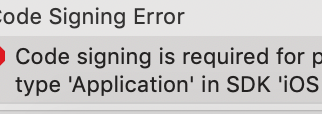 Easily offended. Image courtesy of Shutterstock
Easily offended. Image courtesy of Shutterstock
Well, we survived the holiday season, but maybe just barely. Is it just me, or did you also have to deal with a growing number of people who seem to be offended about things ? silly things? important things?everything!?!
As soon as someone makes it clear that they?re offended, it?s tempting to just move on. But what if you have to deal with that person all the time? What if you actually feel badly about offending them? What if you need a way to redirect your conversations rather than letting them deteriorate?
Well, there?s hope.
Offended Doesn?t Equal Offensive
The most important thing to realize when thinking about how to deal with someone who?s offended is that their taking offence does not necessarily mean that you were offensive. Let me say that again.
Someone can be offended without you having been offensive.
That is really important to remember.
When you keep that in mind, you eliminate the most aversive part of dealing with offended people ? the propensity to question yourself. Is she saying I?m a bad person? Am I a bad person? I don?t think I?m a bad person.
When you understand that someone can be offended without having to take ownership of those feelings, it allows you to stay calm and engage in a conversation. You?ll have the change to learn, and empathize, and secure your reputation as a reasonable person.
Offence is Deeply Personal
Being offended is not an objective reality. There is no measuring stick of offense. Although, I imagine if there was, it would use the Richter scale? ?Ooo-ee, that comment was a magnitude 7.3!? Being offended is an internal response based on how a person interprets a situation. It?s highly subjective. It?s not something you can prove or disprove. If someone is offended, they?re offended.
What Next?
How you respond once you sense (or are told outright) that someone is offended, says a lot about you. You have a few options.
Option #1: Contradict the offended person, tell them why they?re wrong, generally invalidate their feelings. For example, ?Don?t be ridiculous, you aren?t actually offended at THAT!? Sure, it?s an option. Not a good option, but an option.
Option #2: Rebut the offensiveness of the statement. For example, ?There?s nothing wrong with that joke. It?s not misogynistic. I love women. My mother?s a woman and she finds that joke hilarious!? This strategy is not likely to result in a sudden change of heart from the offended person. It?s more of the keep digging strategy for getting out of a hole.
Option #3: Write the person off. Resolve not to waste your time on someone who?s so hostile. Go stand somewhere else. ?I?m just going to go refill my drink, I?ll be right back?? At least this approach doesn?t add insult to injury, but it?s the exact polarizing, retreat into the echo chamber approach that is getting us into trouble.
Option #4: Roll over, give in, feel crappy about yourself is also an option. You might feel so badly about the person taking offence that you change your behaviour, perhaps needlessly. ?Oh my goodness, I had no idea that talking about Accounting was offensive to you, I promise I?ll never mention them again!? In this case, the offended person is imposing their standards on you, which isn?t necessarily appropriate.
A Better Option
1. Confirm your suspicions by sharing what you see. ?It looks like what I said didn?t land well with you.? You?ll soon know whether the person took offense or was just taken aback.
2. If the person admits to being offended, don?t bolt. Start by saying, ?It wasn?t my intent to offend you,? or ?I didn?t realize that was offensive to you.?
3. Ask a question to get the person talking. ?How did you interpret what I said?? or ?What didn?t I understand?? or ?What should I know about how that comment could be interpreted??
4. Listen for clues and try to figure out the source of their concern. What is it that matters to them that your comment or behavior didn?t mesh with?
5. Validate the person by reflecting what you heard. If they revealed something about their perspective, be sure to show them that you got it. ?I get it. You?re tired of the ?bean counter? jokes because you?re sick of accounting always being portrayed as boring.?
6. Share your side. If you want to, take the opportunity to share where you?re coming from. ?I guess I was just reacting to how much of our time it used on going over financials for things that have already happened. I want to talk about what to do next!?
7. Learn and adapt. Was there something you now understand that causes you to reconsider your position? If so, change your tune from now on. Are you still committed to your point, but willing to frame it differently so it?s less likely to cause offense? Great, that will be an improvement.
8. Thank the person for the conversation. Even if you don?t agree with them. Even if your perspective didn?t change one iota, thank them. At least you learned something, you forged a stronger connection. Just a simple, ?Thanks for helping me see your point of view? will suffice.
We?re becoming very polarized lately. Unfortunately, we?re not giving ourselves the opportunity to learn something or work through it because we?re too easily offended by someone else taking offence.
When someone is offended by something you said, push through it and you both might learn something.
For more tips and tools on how to manage the messy stuff on your team, subscribe at lianedavey.com.


